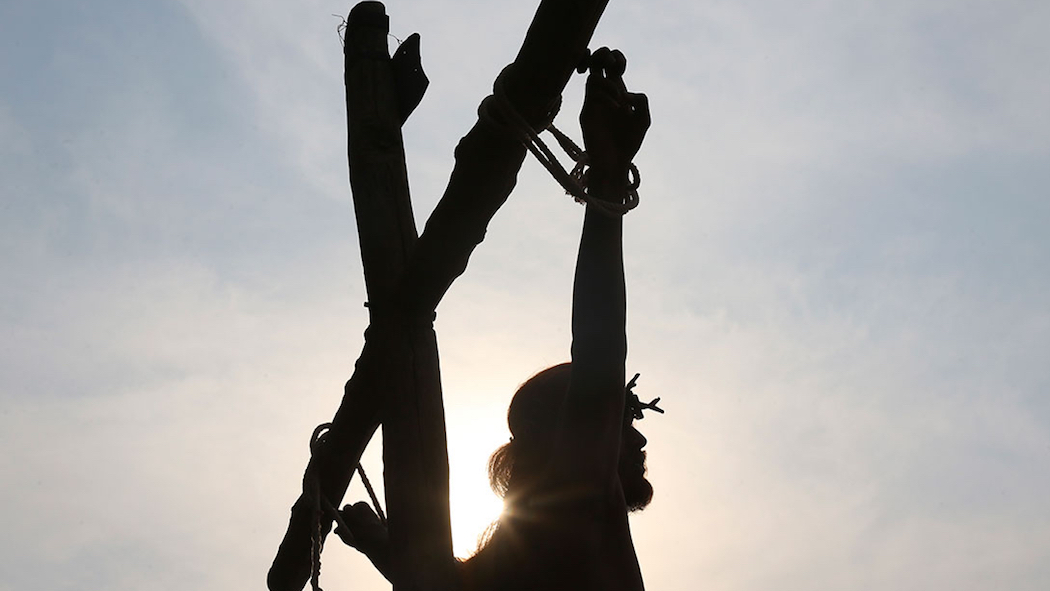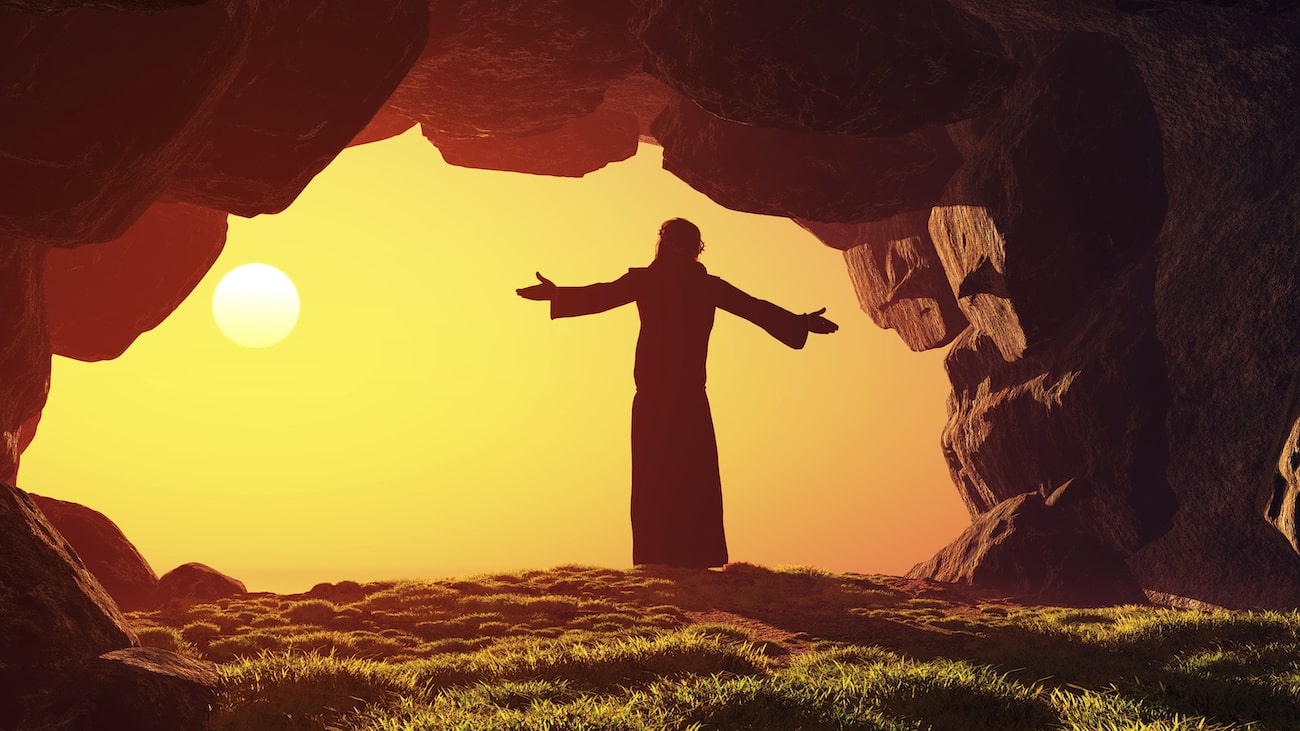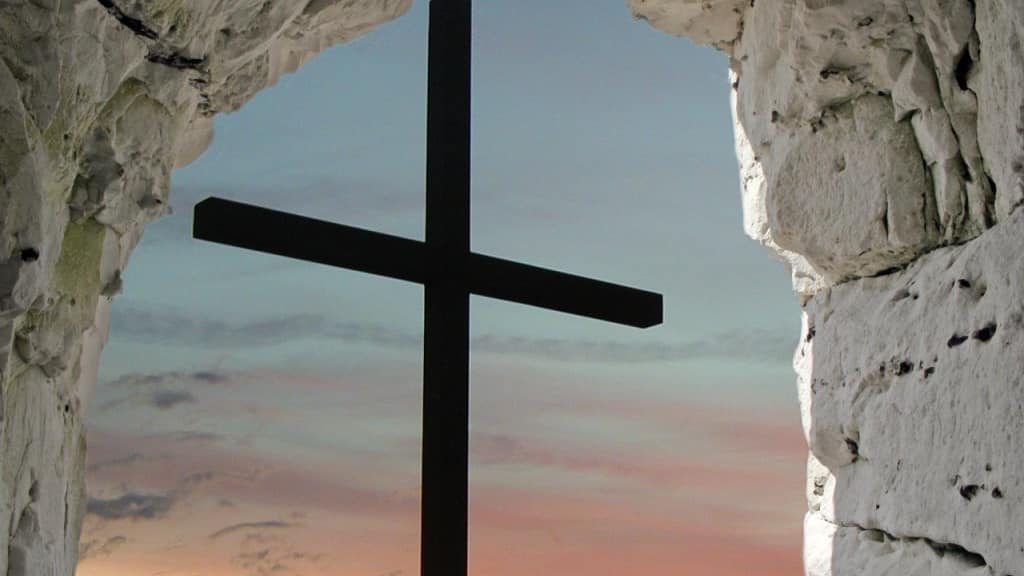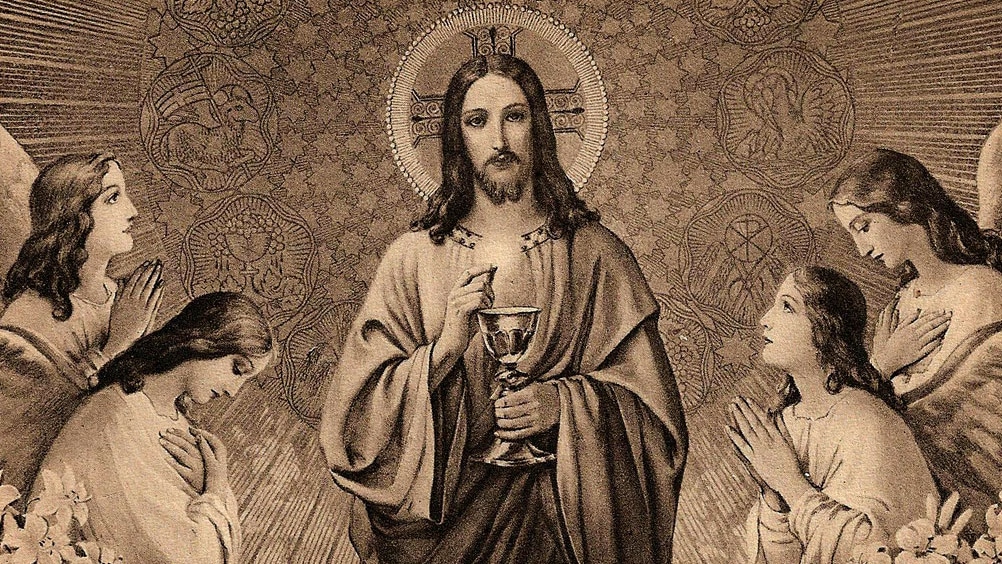We are now in the Easter Triduum. On Holy Thursday, Jesus gives us the two great sacraments which are intimately related to his presence, the Eucharist and the Holy Orders. On Good Friday, we celebrate the passion and death of Our Lord. Then, Holy Saturday introduces us to Christ’s descent into Hades to save Adam and, in the Evening, we celebrate the Easter Vigil.
How beautiful it would be if we see these three days which are intimately related and brought about our salvation in the vision of Popes St John Paul II, Benedict XVI and Pope Francis. These three perspectives, coming from these three Popes, are given to us through the Wednesday catechesis, preceding Holy Thursday.
In his Catechesis of Wednesday 27 March, 2002, Pope St John Paul II spoke about Holy Thursday. According to the Polish Pope Holy Thursday reminds us of what happened in the Upper Room wherein Christ made a gift of himself to the Church, instituted the ministerial priesthood and left to his disciples the new commandment, the commandment of love. He left us himself in the Eucharist as the food of our salvation. Following the Mass commemorating the Lord’s Supper, we as Christians are invited to keep a vigil of adoration with the Lord, obeying the desire that he expressed to the Apostles in the Garden of Olives: “Remain here and keep watch with me” (Mt 26,38) (no.2).
Pope Benedict XVI treats Holy Thursday in his Wednesday catechesis of 20 April 2011. In his rather lengthy reflection on the subject, the German Pope defines Holy Thursday as the day on which the Institution of the Eucharist and of the Ministerial Priesthood is commemorated. He also refers to the Chrism Mass in the morning which, each diocesan community, gathered round its bishop in the cathedral church celebrates. In this Mass, the sacred Chrism, the Oil of the Catechumens and the Oil of the Sick are blessed so that these oils will be used for the sacraments of Baptism, Confirmation, priestly and episcopal Ordination and the Anointing of the Sick.
In these sacraments, Pope Benedict sees salvation, [as being] transmitted by the sacramental signs. Furthermore, this means that salvation flows from the very heart of the Paschal Mystery of Christ. It is in this context that one has to appreciate the commemoration of the Last Supper, at which Jesus instituted the Memorial of his Passover, complying with the Jewish Easter rite. In the Christian sense, in the Upper Room, knowing of his imminent death, Jesus, the true Paschal Lamb, offered himself for our salvation (cf. 1 Cor 5:7).
Moreover, on Holy Thursday Christ appointed the apostles as the ministers of this Sacrament of salvation. Jesus made visible the sacredness of love as service by wash[ing] their feet (cf. Jn 13:1-25), inviting them to love one another as he had loved them, giving his life for them. That is why it makes a lot of sense that, at the Chrism Mass of the morning, The priestly promises will also be renewed. This is such a powerful day when every priest renews the commitment he made on the day of his Ordination to be totally consecrated to Christ in exercising his sacred ministry at the service of his brethren. Blessed are we if we accompany our priests with our prayers.
Finally, Holy Thursday is concluded with Eucharistic Adoration, in memory of the Lord’s agony in the Garden of Gethsemane. We too are called to accompany Jesus during his agony at the Gethsemane Garden where he experienced great anguish, such acute suffering that it made him sweat blood (cf. Mt 26:38).
Pope Francis presents to us his reflections on Holy Thursday thanks to the catechesis of Wednesday, 31 March 2021. He reminds us that the liturgical term for such Mass is Coena Domini, in other words, the Mass in which we commemorate the Last Supper, what happened there, in that moment. This Mass powerfully reminds us of Jesus’ testament of his love in the Eucharist, not as a memento, but as a memorial, as his everlasting presence. In practice this means that Every time we celebrate the Eucharist, as I said at the beginning, we renew this mystery of redemption.
Through the use of simple yet very profound words, the Argentinian Pope helps us delve deeper into the Eucharistic mystery. He tells us that in this Sacrament, Jesus substituted the sacrificial victim — the Paschal lamb — with himself: his Body and Blood grant us salvation from the slavery of sin and death. The salvation from every form of slavery is there. In the presence of such love Jesus challenges us during this evening to love one another by becoming servants to one another, as he did in washing the disciples’ feet, a gesture that anticipates his bloody oblation on the cross.
On Good Friday, Pope St John Paul II brings to our minds and hearts that tragic chain of events of the Passion of our Redeemer leading to his crucifixion on Golgotha. Thanks to the Adoration of the Cross we start to comprehend more acutely the infinite mercy of God. Jesus resolutely underwent that immense sorrow, thus becom[ing] the definitive proclamation of salvation for humanity. Although the way of the Cross is difficult indeed, yet it is only there that we receive the mystery of the Death that gives life.
Pope Benedict sees Good Friday as kicking in through the nocturnal adoration of Holy Thursday. Even if the three Apostles — Peter, James and John — were asleep but they awoke intermittently and heard the refrain of this prayer of the Lord: “not my will, but your will be done”. Pope Benedict explains this verse in the following manner: And Jesus draws our will — which opposes God’s will, which seeks autonomy — upwards, towards God’s will. This is the drama of our redemption, that Jesus should uplift our will, our total aversion to God’s will and our aversion to death and sin and unite it with the Father’s will: “Not my will but yours”. In this transformation of “no” into “yes”, in this insertion of the creatural will into the will of the Father, he transforms humanity and redeems us. And he invites us to be part of his movement: to emerge from our “no” and to enter into the “yes” of the Son. My will exists, but the will of the Father is crucial because it is truth and love.
Within this prayer of Jesus we come to appreciate that in this drama of Gethsemane, where God’s power no longer seemed to be present, that Jesus fulfilled his role as High Priest. Most importantly, in this act of obedience, that is, of the conformation of the natural human will to God’s will, he was perfected as a priest. Finally, as Pope Benedict explains so well, the Letter to the Hebrews uses the technical word for ordaining a priest …“prosferein” (Heb 5:7ff).),, which is the technical term for what the High Priest must do to offer, with raised hands. In this way he truly became the High Priest of humanity and thus opened Heaven and the door to the resurrection.
It is when seen from this point of view that Good Friday, which is the commemoration of the Passion and death of the Lord; we will worship the Crucified Christ, we will share in his suffering with penance and fasting. Let us not forget that from Christ’s pierced heart (cf. Jn 19:37), from which blood and water flowed as from a source, from that heart from which the love of God for every human being flows, … we shall be able to … receive his Spirit. Consequently, Pope Benedict invites us to accompany Jesus on his ascent to Calvary, allowing him to guide us right to the Cross and to receive the offering of his immolated Body.
From his perspective, Pope Francis views Good Friday as the day of penance, fasting and prayer. Liturgically, we will be as though gathered on Calvary to commemorate the redemptive Passion and Death of Jesus Christ with that intensity that will lead us to adore the Crucifix. Furthermore, the Crucified Christ helps us carry in our minds and hearts the sufferings of the sick, the poor, the rejected of this world. These are the “sacrificed lambs”, the innocent victims of wars, dictatorships, everyday violence, abortions… Christ crucified invites us to bring, in prayer, the many, the too many who are crucified in our time, who can receive comfort and meaning in their suffering only from him… of all the wars that are being fought in this moment; of all the children who die of hunger; of children who have no education; of entire populations destroyed by wars, by terrorism.
The Crucified Jesus fulfils the mission given to him by the Father by enter[ing] into the abyss of suffering, he enters into these calamities of this world, to redeem and transform. Jesus Crucified has the power to free every one of us from the power of darkness, of pride, of resistance to being loved by God. Jesus Crucified abandoned on the cross, no one will ever again be alone in the darkness of death. Never, he is always beside us: we need only open our heart and let ourselves be looked upon by him.
Following Jesus’ supreme Sacrifice on the cross comes Holy Saturday. For St John Paul II Holy Saturday will offer us the opportunity to await the glorious event of the Resurrection, in prayer with Mary, already beginning to savor its deep joy. On the other hand, according to Pope Francis, Holy Saturday is the day of silence: there is a great silence throughout the World; a silence lived by the first disciples in mourning and bewilderment, shocked by Jesus’ ignominious death. It is a day of testing one’s faith in Jesus. The Holy Father tells us: Those who had hoped in him were put to a difficult test, they felt like orphans, perhaps even orphaned by God. Moreover, Holy Saturday is Mary’s day since she too lived it in tears, but her heart was full of faith, full of hope, full of love. The Mother of Jesus had followed her Son along the way of sorrows and remained at the foot of the cross, with her soul pierced. When everything seemed lost here rises that incredible faith of Jesus’ Mother who kept watch, she kept vigil, in expectation, maintaining her hope in the promise of God who raises the dead. Thus, in the world’s darkest hour, she became the Mother of believers, the Mother of the Church and the sign of hope. Her witness and her intercession sustain us when the weight of the cross becomes too heavy for each one of us.
Holy Saturday leads to Easter Sunday, which, in St John Paul II’s view, evolves in the Easter Vigil, singing the “Gloria” the splendor of our destiny will be revealed: to forge a new humanity, redeemed by Christ who died and rose for us. On Easter Sunday, in the Churches in every corner of the earth rings out the “Dux vitae mortuus regnat vivus”, “the Lord of life was dead, now alive he triumphs” (Sequence), we will be able to understand and love the Cross of Christ forever; on it Christ overcame sin and death forever!
According to Pope Benedict the transformative liturgical joy of Easter Sunday is translated into the sacramental resurrection and healing brought about by the sacrament of confession. He wisely counselled us: In this regard, with a view to the forthcoming celebrations every Christian is asked to celebrate the sacrament of Reconciliation, a moment of special adherence to the death and Resurrection of Christ, to be able to participate more fruitfully in Holy Easter.
In Pope Francis’ words, going for sacramental confession is the real festive hymn of the Hallelujah. It is in this sacrament that one encounter[s] in faith with the Risen Christ, and the joy of Easter will continue. Easter and sacramental confession are one because they both give[] us the certainty that good always triumphs over evil, that life always conquers death, and that it is not our end to descend lower and lower, from sorrow to sorrow, but rather to rise up high. Yes, the Risen One is the confirmation that Jesus is right in everything: in promising us life beyond death and forgiveness beyond sins.
Accompanied by such immense spiritual richness being offered to us by Jesus through his servants St John Paul II, Benedict XVI and Francis let us meditate, enjoy and be transformed in these three privileged days which mark our salvation.








